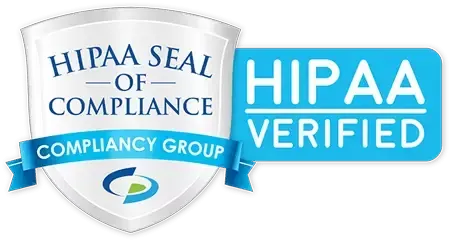What to know before launching your healthcare digital marketing campaign
If you’ve landed on this blog from a Google search page, odds are you’re a healthcare professional looking to create a healthcare digital marketing campaign or hire someone to do it for you. Most sources will offer a relatively generic narrative about how healthcare needs to adapt to the digital world, topped off with some basic healthcare marketing strategies. Unfortunately, they don’t tell you the whole story.
Before you begin thinking about developing an effective healthcare digital marketing campaign, it’s helpful to understand the unique complexities and challenges that healthcare digital marketing poses. And, after 30 years in the business, with specialties across private healthcare and public health, the Estipona Group team has faced those challenges – and we’ve developed an approach that works.
What is healthcare digital marketing?
Healthcare digital marketing utilizes online (digital) platforms and strategies to promote healthcare services and engage patients. When developing healthcare marketing strategies, it’s critical to understand and adhere to regulations relating to patient privacy.
What makes healthcare digital marketing uniquely challenging?
Accommodating various levels of healthcare literacy
How would you describe insurance co-pays to a fourth grader? How about advanced laparoscopic surgery? Healthcare is complex, filled with topics that are difficult to understand and discuss, particularly for those with lower healthcare literacy. As marketers, it’s our job to speak to the person in our target audience with the lowest level of comprehension and access to resources (we wrote about this).
When marketing your services, you need to make complex medical jargon simple for people to understand and ensure that your patients (or potential patients) know how to get care from your organization, including referrals and insurance approvals. Keep in mind that explaining how someone could benefit from your services can’t be misconstrued as giving medical advice – which for the sake of both the patient and practice, should only be given by a provider to an established patient after examination.
Helping the right people find you
A top priority for healthcare marketers is ensuring people know where you are, what you treat and what it takes to become a patient. With widespread low healthcare literacy and confusing coverage requirements, it can be challenging for potential patients to find a provider. A healthcare digital marketing campaign can help connect the right patients with your providers.
Before launching any healthcare digital marketing campaign, claim all of your business listings, including Google My Business, Healthgrades, Yelp and RateMDs. In addition to claiming your primary business location listing, you will also want to claim/verify all the individual providers’ listings. Fair warning, getting access can become a challenge – nay, a nightmare – especially if these accounts were previously set up individually by doctors or their former practices.
Fill these profiles out completely. Google (and every other platform) rewards better rankings to profiles that are complete and updated frequently. You should also have a strategy for soliciting reviews. Again, don’t just focus on your practice's main location listing. If you have your primary listing and three of your doctors dominating the map in a local Google Search, that’s a big win.
Overcoming misinformation and lack of trust
Healthcare market research shows us that many Americans are leery of healthcare systems and the pharmaceutical industry due to political leanings and misinformation spread by social media – and this rate is increasing.
Research also shows that minorities are less likely to trust healthcare systems due to their unique historical and cultural perspectives. For example, Black Americans have historically been discriminated against and harmed by the medical system, and Spanish-speaking patients may assume that nobody at the practice will be able to communicate with them. Hesitation to seek care is even greater when immigration status is at play.
When developing your messaging approach, aim to build credibility and trust by presenting accurate information that aligns with the unique needs of your audience. Ultimately, your audience should feel like you have genuine care for their health and well-being, and the expertise to optimize their outcomes.
Determining an objective based on your unique healthcare ecosystem
Healthcare ecosystems consist of multiple players that influence a patient’s experience and outcomes. Depending on your organization, this may include referrers, outpatient facilities, medical partners, insurance providers, pharmaceutical companies or nonprofit/advocacy groups. To determine which healthcare marketing strategies make the most sense for your practice, it's important to fully understand and consider the path a patient would take to make it to a medical appointment. Getting a patient into orthopedic urgent care is significantly different than getting them to see a specialist in a less well-known field like urology.
Based on a patient’s path through your doors, does the practice need to focus on brand awareness, educating referrers about your specialty, or combatting confusion about insurance practices around patient choice? These questions – and answers – will depend on your practice and the ecosystem in which your patients make decisions about their health.
Communicating without violating HIPAA regulations
Healthcare is one of the most regulated industries from an advertising perspective. Any individualized marketing (e.g. email campaigns) needs to comply with the Health Insurance Portability and Accountability Act (HIPAA), and shouldn’t identify an individual as a patient or provide any details about past treatments in a non-secure environment.
Additionally, HIPAA impacts marketing tracking. For example, passing any search parameters and other data into URL strings captured by Google Analytics or the Facebook Pixel can create unintentional privacy issues. Likely, these parameters won’t have any personal information, but that won’t stop Meta and Google from stopping your pixel from firing and/or penalizing your campaign.
You can also run into HIPAA compliance issues with review management. Responding to patient reviews, particularly negative ones, presents an opportunity to inadvertently disclose protected data related to the patient's visit. You need to stifle the desire to provide context and clarity to a social media audience when responding to a negative review, and take the discussion offline.
You may also run into a HIPAA issue with other marketing technology software, such as footfall attribution or geofencing, which are often restricted around medical practices.

Pro tip: Hire a HIPAA verified marketing agency (like us) to avoid these pitfalls altogether and safeguard patient information while maintaining effective digital marketing strategies.
Developing your digital bedside manner
Healthcare is an innately personal choice. It’s more than “selling” the procedure or the practice – people want to know and trust their doctor. Bedside manner has extended to the digital world, and what you put out in your owned channels may make or break the first impression.
For example, imagine someone is trying to find a provider and they come across a negative review of your practice. If your response is dismissive, you’ve likely given the impression that you don’t take your patients’ concerns seriously. If you don't respond, you could give the impression that the patient experience is not important to the practice. The person seeking healthcare services is more likely to make an appointment with a provider who responds respectfully and with genuine concern for the unsatisfied patient’s well-being.
Our approach to effective healthcare digital marketing

1. Set up access
Get started on this as soon as possible. Setting up your business account and marketing access can take a lot of time and effort, but it needs to be done before you can launch any campaign.

2. Gain a deep understanding of your healthcare ecosystem
After you’ve set up access and are ready to consider healthcare marketing strategies, you’ll want to reflect on your healthcare ecosystem and how it affects the patient experience. This includes staff, referrers, insurance providers and medical partners. Dive deep into the patient journey, from their first point of contact within the ecosystem to their appointment at your facility.

3. Perform healthcare market research
This is an optional, but often highly beneficial, step. Healthcare market research includes surveys, focus groups, interviews and secondary research. If your budget allows for it, healthcare market research can help you identify trends, understand patient needs, pinpoint competitors' strategies and tailor your message to resonate with your target audience.

4. Develop appropriate healthcare marketing strategies
Once you’ve looked critically at your internal ecosystem and conducted any relevant research, you can determine your target audience and messaging strategy. Who should you target, what kind of messages do you need to convey and what’s your unique selling point against competitors?

5. Set up tracking
This step is crucial – without it, you can’t know how what you’re doing is working. Here's our go-to checklist to help you with the process.
Healthcare marketing tactics to consider
Digital advertising
This includes display, social and native ads, all of which can be essential to a successful campaign. Hyperlocal social media marketing is proving to be a highly effective strategy for smaller healthcare practices with regional competition. Taking a hyperlocal social media approach can help build credibility and preference for your practice within a specific, localized geographic area.
Search Engine Optimization
Search Engine Optimization (SEO) helps your site show up more frequently and higher on search engine results pages when potential patients search for services or expertise relating to your practice. For a detailed overview of SEO and how to get started, read our SEO blog.
Email marketing
As one of the highest converting channels for most organizations, you should consider email marketing as part of your marketing mix. However, it’s essential that email marketing platforms and databases are secure and comply with HIPAA regulations. You can implement measures to safeguard patient data, such as encryption, access controls and regular audits. We also recommend establishing a protocol for all staff members that protects privacy and prevents the release of protected health information.
We’re here to help.
Healthcare digital marketing, while crucial to helping medical practices compete, is truly its own beast. The good news is, we’re here to help. We specialize in healthcare digital marketing and we’re just a form-fill away. If you want to market your practice but don’t have the time or energy to take it on, get in touch with us.



